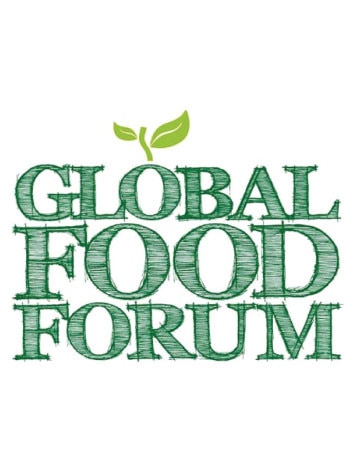
It was all well and good to talk about the state of the bilateral relationship and selling specific Australian goods and brands such as Penfolds to China, he said, but when it came to dollar values, most of Australia’s $13bn in agricultural exports to China were bulk commodity sales.
China’s purchases of commodities such as wheat and dairy products flow directly into global prices, which flow directly to Australian farmers.
“When we talk about China, we are … simplistic in a number of ways,” Irvin said.
“We are now using the language: ‘China is open’. But China has been open for a lot of stuff, and when we talk about success in China, one of the things we forget is that they are a big commodity buyer.
“So when we are talking about global dairy commodities being down, we are talking about increased production around the world, but also a quiet China.”
He said it was important to look at the macro outlook, rather than focusing too much on micro issues around individual products.
“When you think about what’s happening with your commodity, never underestimate exactly how much commodity China buys to fuel its food supply chain and its local brands.”
He said while China was closed to the world during the pandemic, its consumers had still been buying, but he said it was critical to look at longer-term trends in food buying by Chinese consumers.
“Some of the changes we are seeing (in China mean) there is great opportunity, but some of the changes are associated with commodities and the purchasing of commodities, as well as the lovely success stories around branded products.”

Last year’s Forum was held at a time when the agricultural sector had benefited from strong global commodity prices, which, together with extensive rain and low interest rates, put the sector in a buoyant mood.
The tragic war in the Ukraine has also kept food prices high. But this year there was a more cautious view, with the agricultural sector facing tougher times.
As higher interest rates take their toll on global demand, the industry is also fearing the return of less favourable weather conditions. A hot, dry El Nino could bring drought conditions, while local prices for dairy and cattle have come off in recent times.
While there are many factors at play, including domestic supply and demand issues, the state of the Chinese economy – and Chinese consumer demand in particular – continues to have a strong impact on the sector.
On the face of it, the Chinese economy has rebounded reasonably strongly since the Covid reopening, recording 4.5 per cent growth in the first quarter of this year.
China’s economy, which once recorded heady growth rates of more than 10 per cent a year, has been an engine of world economic development, responsible for 30 per cent of global growth from 2013 to 2021.
The IMF is predicting that growth in China and India will account for half of the world’s total economic growth this year.
China’s economy expanded by only 3 per cent last year because of Covid restrictions, missing its official growth rate target of 5.5 per cent for 2022.
The official Chinese government growth target for this year is the relatively modest 5.2 per cent, but commentators – including economists at National Australia Bank – are looking for a stronger 5.6 per cent.
A key factor in the Chinese economy, and global food demand, is the outlook of Chinese consumers.
China is an economy where gross figures can be affected by government stimulus measures in construction and infrastructure spending.
But the mood of the Chinese consumer is a critical factor and an indicator of future demand trends.

In a recent report on the Chinese economy, consulting firm Dezan Shira Associates noted that “China’s economic rebound appears uneven, with unemployment in the youth demographic still being comparatively high and consumer spending having much room to grow.”
Several commentators at the forum who had just come back from visits to China reported a new mood of subdued consumer demand in the country.
Wattle Hill capital founder Albert Tse noted that the burst of post-Covid “revenge spending” was over, with Chinese consumers taking a much more cautious view, concerned about weakening property prices.
Paris Zhang, executive director of international markets with law firm Minter Ellison, also noted that the Chinese consumer of 2023 was much more value-conscious and much more likely to opt for local brands than spend up on high-end luxury brands from overseas.
Chemist Warehouse chairman and co-founder Jack Gance got the headlines with his comments that China’s love affair with Australian goods was over, as the Chinese government encouraged consumers to buy more local products and was discouraging purchases of Australian goods for political reasons.
But in a panel later in the day, Chinese market adviser Will Zhao, the chief executive of Yaru Ventures, who recently returned from China, strongly rejected the comments, arguing that the real problem was not demand for Australian goods but subdued demand from Chinese consumers more generally.
“The decrease in consumer sentiment towards Australian products is not isolated to Australian products,” he said.
He said there had been a general decline in demand in China because of the Covid-19 pandemic, which was persisting despite the opening up.
“Obviously, there’s been politics in there (about the purchase of Australian goods) but the general consumer sentiment towards the quality of Australian products has not deteriorated,” Zhou said.
In comments that directly challenged Gance’s view, April Huang – a senior executive with one of China’s fastest growing supermarket chains, Hippo Fresh, who is on a visit to Australia looking for food products to buy – made no secret of her enthusiasm for Australian food products.
Huang is a walking cheque book on a trip to Australia with a clear eye to sourcing more products from this nation, including dairy, seafood, meat, and wine.
As soon as the tariffs came off Australian wine, she said, she was keen to start buying.
If her comments are any guide, Hippo Fresh, an expanding supermarket chain linked with e-commerce giant Alibaba, could become an important buyer of Australian food products.
The debate at the Forum covered many areas including China, with different points of view.
However, it was clear from the comments that the sentiment of the Chinese consumer – on a product by product basis, and in aggregate demand for global foods – will be a key factor which will play into the health of the Australian food and agricultural sector into the future.








In his wrap-up of The Australian’s 11th Global Food Forum on Thursday, food industry veteran and Bega Cheese chairman Barry Irvin made a fundamental point about the importance of China to the Australian agricultural sector.